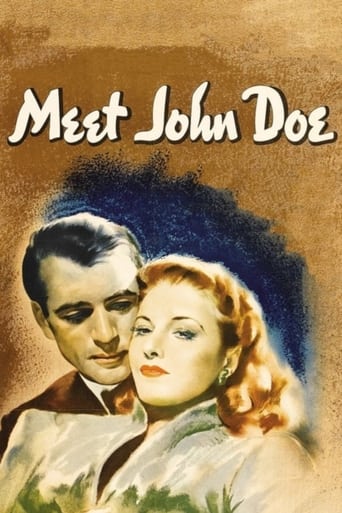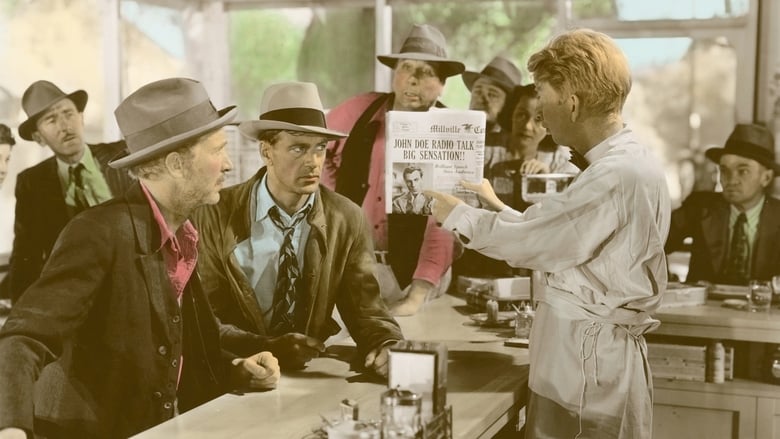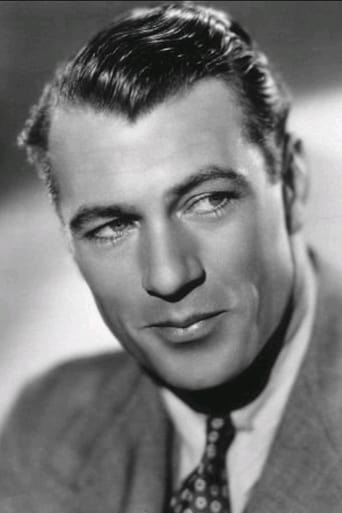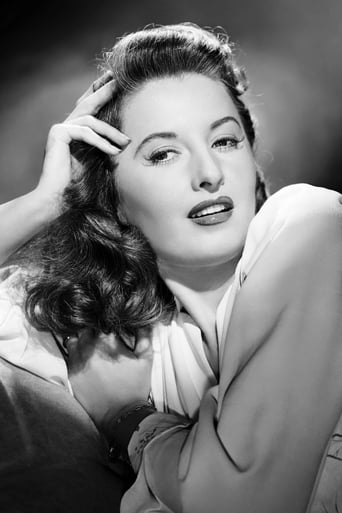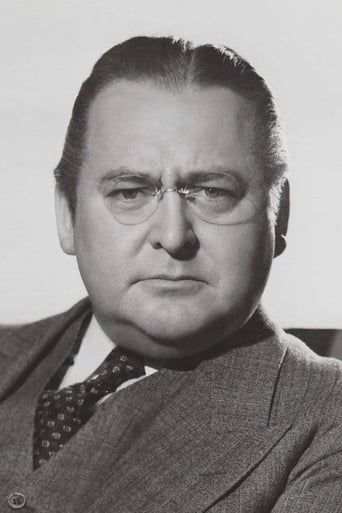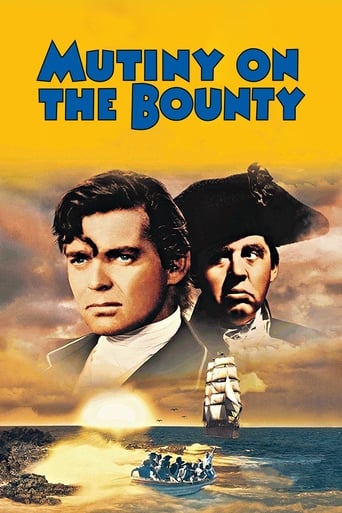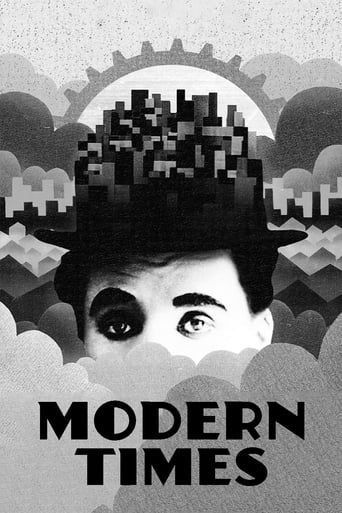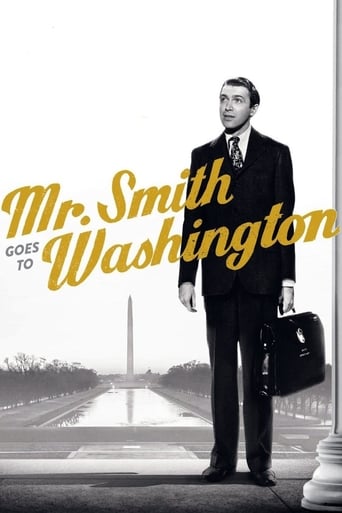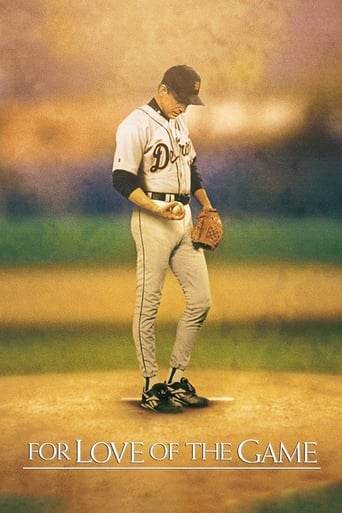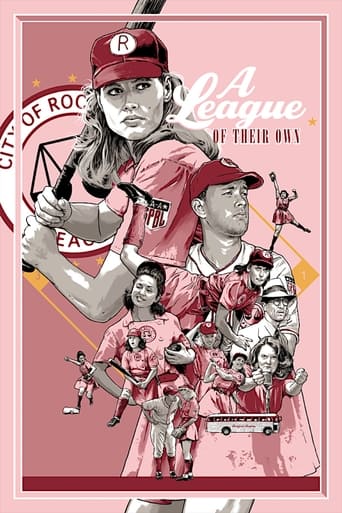Meet John Doe (1941)
As a parting shot, fired reporter Ann Mitchell prints a fake letter from unemployed "John Doe," who threatens suicide in protest of social ills. The paper is forced to rehire Ann and hires John Willoughby to impersonate "Doe." Ann and her bosses cynically milk the story for all it's worth, until the made-up "John Doe" philosophy starts a whole political movement.
Watch Trailer
Cast
Similar titles
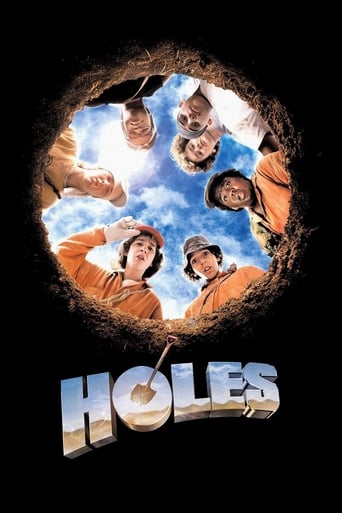

Reviews
This is a small, humorous movie in some ways, but it has a huge heart. What a nice experience.
One of the worst ways to make a cult movie is to set out to make a cult movie.
This is a dark and sometimes deeply uncomfortable drama
Worth seeing just to witness how winsome it is.
Anyone who thinks Frank Capra was good for nothing but sentimental schmaltz should check out "Meet John Doe" as evidence that he frequently hid a bitter pill at the center of his candied Americana.The allure of Barbara Stanwyck is what drew me to "Meet John Doe" in the first place, but I was disappointed both by her performance (uncharacteristically frantic) and by the fact that she drops out for large portions of the film. Instead, I was impressed with Gary Cooper, who delivers a tour de force performance as an average Joe who agrees to pose as a representative of the common man as part of a scheme to get back at a newspaper mogul and then finds that he begins to believe the lines he's given to recite when the scheme blows up and becomes something huge involving big business and political candidates. The film feels incredibly prescient at this moment in time, because it's so much about how easily the average working-class American is manipulated by the media and is at the mercy of rich politicians who don't give a damn about their plight but will tell them whatever they want to hear to get elected. The movie was meant as a rallying cry for good decent people to ban together and force the positive change their elected leaders and the media deny them, and ends on a hopeful note that this is actually possible. But again, watching it at this specific moment in time, it's hard to feel anything but melancholy that our country feels further away than ever from realizing the idealism Capra so earnestly believed in.In addition to Cooper and Stanwyck, the film boasts an impressive performance by Edward Arnold, whose character is representative of every manipulative, greedy politician to ever darken the American landscape, and able support from character actors James Gleason and Walter Brennan. Richard Connell and Robert Presnell were Oscar nominated for writing the film's original story.Grade: A-
There is so much said about this film. It involves what proves to be a big time publicity stunt. John Doe, of course, is everyman. He has the best of intentions, but he soon gets caught up in a tidal wave of attention where his simple message is overwhelmed by quickly converted. It is mindful of the Christians who live their religion on their sleeves and only practice it for one hour on Sunday morning. These are some of the people who are quick to turn on their brothers and sisters without a thought. John is a sincere, thoughtful man, who is willing to make the ultimate sacrifice for his own integrity, to follow through with his promise. The fact of the matter is that once this act takes place, those who were yammering for his head would go home and think, "Boy, he was a crazy guy!" This is an excellent film. I wonder what Frank Capra would think of the world today.
Gary Cooper is the pigeon set up by crooked politician Edward Arnold to embody the downtrodden Everyman: friendless, out of work, suicidal; but after the public overwhelmingly responds to 'John Doe' and his wholesome pleas to love thy neighbor, Cooper realizes he's been duped and the politico threatens to expose him as a fraud. Preachy, though well-acted drama about the fickle heart of humanity leads to woebegone conclusion which no one behind the camera was quite satisfied with. The original story from Richard Connell and Robert Presnell was nominated for an Oscar, but only in the film's vibrant first-half do we get a sense of something fresh and exciting happening. Director Frank Capra once again settles for sentiment over substance. ** from ****
It's best to think of this as a Great Depression story, when it was probably conceived. Barbara Stanwyck is a reporter who tries to keep her job by concocting a letter from a nonexistent "John Doe" who is mad as hell and is not going to take it anymore. So he's going to jump off a skyscraper at midnight on Christmas Eve. When the letter is published, the public reacts with excitement. They vow support for the phantom Doe. Stanwyck's editor, James Gleason, decides that the newspaper and its owner, Edward Arnold, should go with the flow and hire some bum off the street to play John Doe.They pick the friendly, innocent Gary Cooper, ex-minor-league baseball pitcher, accompanied by his equally crummy buddy, Walter Brennan. These two hobos are raggedy and hungry, the kind of people who at the time were called "bindle stiffs." The "bindle" was the bundle of personal effects they carried over their shoulders. A "stiff" was a person of no importance. You can still hear the word in the expression "working stiff." Where was I? These damned voices keep distracting me. Oh, yes.So Cooper is hired to act as John Doe. After Christmas Eve, when he has his phony date with the angels, he is to be given a railroad ticket straight out of town and disappear.Surprisingly, though, his radio speech turns the audience on. They love it. They form multitudes of John Doe Clubs all around the world. The John Doe philosophy? Nothing dangerous, don't worry. "Let's be kind to our neighbors." "Let's break down the walls separating all of us John Does." The villainous Edward Arnold, the paper's owner, gets an idea. As the John Doe Clubs spring up all over, he sees their members not as airheaded do-gooders but as voters. This leads to a bright idea. In his next radio speech, John Doe will announce that Edward Arnold is forming a third party and running for president. All those John Does out there will vote for him -- "that's ninety percent of the vote." And Arnold's philosophy is a little different from that of Cooper and Stanwyck, who has been writing his speeches. "Everybody's complaining," Arnold tells his cohort of corrupt goons, gangsters, politicians, and labor leaders. "What this country needs is a firm hand, some discipline." Does Arnold's scheme work? Of course it does. That's why he was elected president in 1944 and switched our allegiance to Nazi Germany and we lost the war and were occupied by the UN.Well, the fact is that Arnold may be evil but these targets are pretty soft ones. The film is so stripped of real-life counterparts that it almost amounts to a fantasy. The private police force that Arnold has at his disposal are all dressed as State Police but their shoulder patches read "Norton Motorcycle Squad." Something else about Arnold. He probably gives the best performance in the movie. It's really quite subtle. He has to activate several latent roles -- loudmouthed dictator, thoughtful schemer, avuncular con man, and repentant fomenter of discord. He's followed closely by Barbara Stanwyck, in one of her fine performances of the period, and by Cooper himself, who must look simultaneously stupid but sensitive. Cooper has a priceless moment near the beginning as he is shown to a fancy hotel room and allowed to order five hamburgers from room service. With a wide smile he hangs up the phone, then notices the statue of a bouquet-holding nude woman on the stand. His expression changes instantly to an exopthalmic gawk. Capra and the editor give him a full half minute to stare at it, touch it tentatively, and gulp, before Stanwyck's voice comes from behind him and he jumps. It's a small moment but an exquisitely comic one.This was the last of three films that Frank Capra directed before entering the Army for World War II -- the others being "Mr. Smith Goes to Washington" and "Mr. Deeds Goes to Town." All have in common an innocent young hero who runs into greed and corruption and through strength of will manages to overcome his adversaries. Capra was an apolitical populist and humanist, and there's a good deal of corniness in these movies, but that doesn't stop them from being successful. "John Doe", unlike the others, becomes almost tragic before the improbable end. After his war service, Capra directed one more wildly successful film, "It's a Wonderful Life," perhaps the best modern Christmas story, but it too had its moments of genuine anguish.
